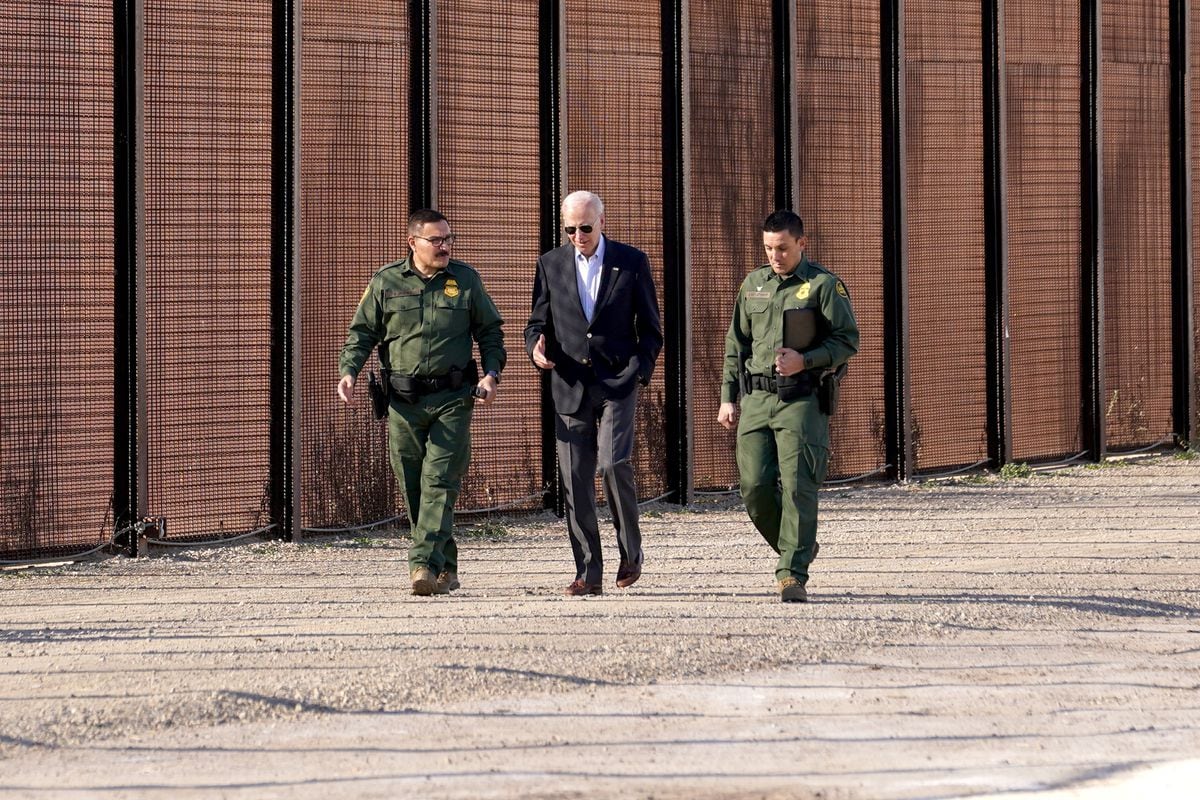The Supreme Court on Wednesday rejected the request of a group of states governed by the Republican Party that wanted to be allowed to fight in court to reinstate
the public charge rule
as reformed by Donald Trump, thus punishing migrants. with fewer resources in the granting of
visas and residence permits
in case of having required or needed economic or social aid.
In this way, the public charge rule
remains in force
as established by the Joe Biden Administration, which has a more limited impact on migrants, and
the much harsher version of this rule that Trump established continues to
be annulled
. .
The Republican states had asked the Supreme Court to uphold their intention to uphold Trump's rule in court, an action that should in principle be up to the federal government.
The magistrates indicated in the opinion published this Wednesday that their request was "dismissed for having been granted unexpectedly."
This means that the high court, after initially agreeing to hear the case, found a reason why it should not have taken it in the first place.
This decision does not address public charge per se, nor does it imply a particular view “as to what would be the appropriate resolution of other pending or future litigation related to, or its repeal or replacement of, the 2019 public charge rule. by a new rule”, indicates the opinion written by Judge John Glover Roberts.
Trump's public charge and the court battle
In 2019, the Trump administration expanded the definition of what it means for a person to be a public charge for the state, and for this reason they can be denied legal residence in the country.
His rule required officials to consider whether migrants had received noncash benefits such as Medicaid health insurance, food stamps and federal housing assistance.
Until then, only cash aid and long-term institutional care paid by the Government were considered.
Three out of four Latino families are unaware that Trump's 'public charge' rule was repealed
April 8, 202201:22
Other factors such as age, financial resources, employment history, education and health also became part of the new law, saying they would reinforce "ideals of self-sufficiency and personal responsibility, ensuring that immigrants are able to support themselves." and be successful here in America.
In this way, the rule opened the door to rejecting
green cards
or some visas, considering that eligible immigrants who received or would need some type of help for more than 12 months during a period of 3 years could become a burden for the country.
Although
in practice the rule affected very few migrants
, its announcement caused fear in families, and it is estimated that thousands gave up benefits and aid when it was not necessary.
The new regulations generated a legal dispute in lower courts, which issued opposing rulings on its alleged violation of federal law and reached several judges to block its application.
But the Trump administration appealed.
The Biden Administration, through the Department of Justice, informed the Supreme Court in March 2021 that it supported the governments that had challenged the measure and that, consequently, it was abandoning the judicial battle and reestablishing a more simplified law.
Fear, the domino effect that Trump achieved
The public charge rule is a federal law that was created more than 100 years ago to identify those who depend or may depend on the government as their main source of support.
Does emergency Medicaid affect the sponsor in an immigration case?
March 10, 202201:11
It applies mainly
to people who apply for permanent residence or
green card
, some type of visa or readjustment of their immigration status.
Excluded
, however, are refugees, asylees, many survivors of human trafficking, domestic violence, or other serious crimes.
[This is how the public charge rule works: how it affects immigrants who receive aid]
But the expansion of the public charge rule generated a wave of fear in eligible low-income immigrants, leading them to give up food stamps, application for low-cost health insurance and other types of aid for fear of being rejected by the Administration. .
Millions of families refrain from asking the Government for help for fear of a non-existent rule
Dec. 20, 202103:15
Nearly a fifth of adults from low-income migrant families acknowledged in surveys conducted in 2018 and 2019 that they deprived themselves of receiving benefits due to fear of the rule.
An analysis by the Migration Policy Institute found that during the Trump administration , the participation in Medicaid and CHIP of citizen children
living with undocumented people
also fell by 18% .
However, experts stress that receiving some form of government aid does not automatically make an immigrant a public charge.






